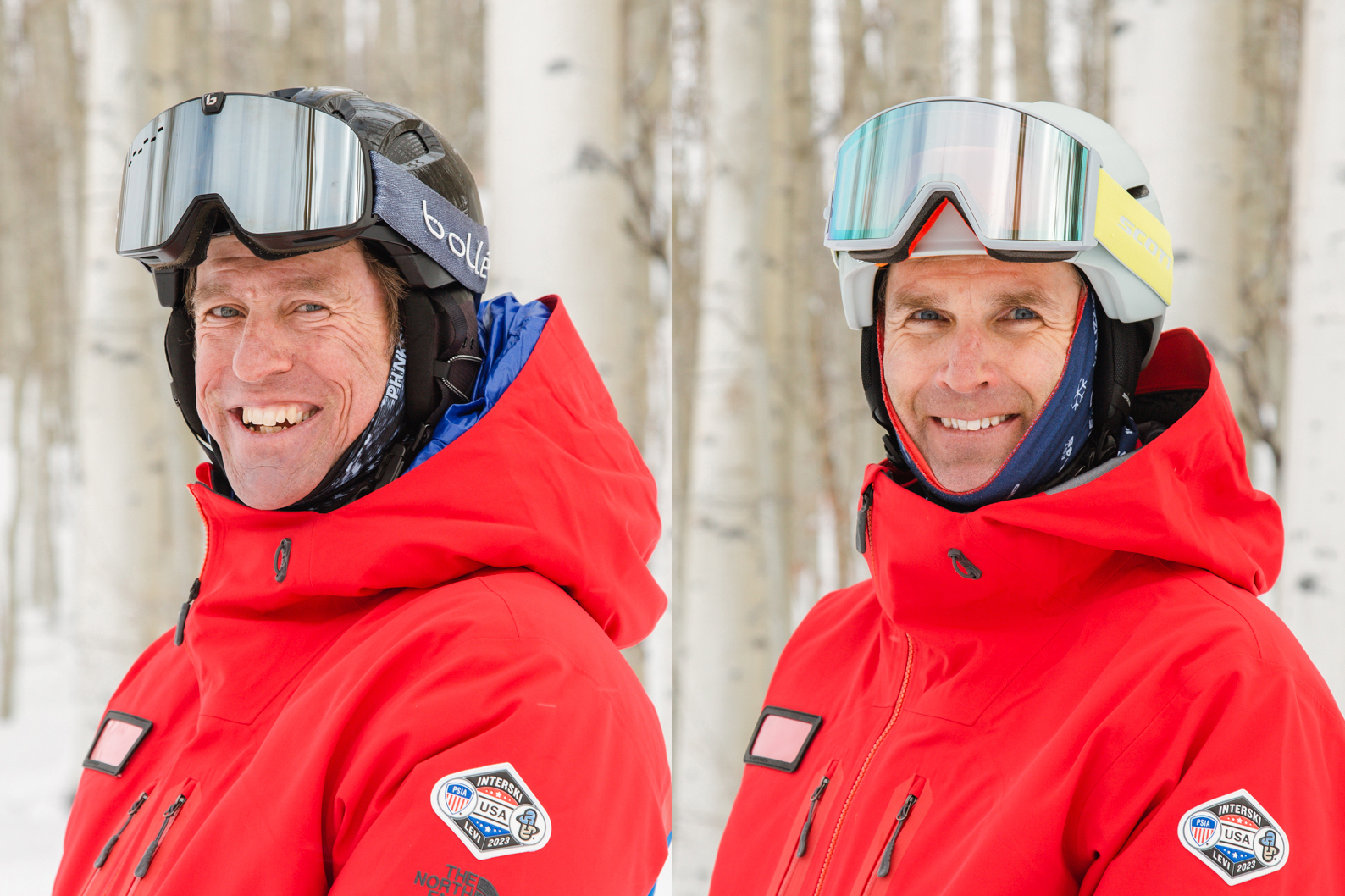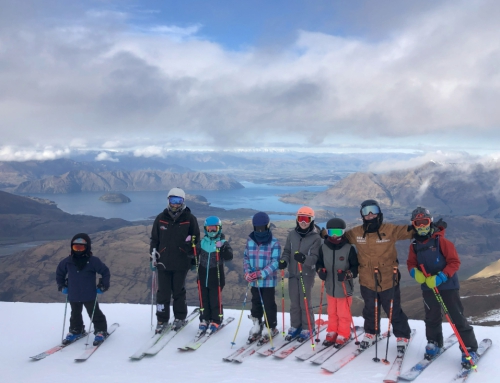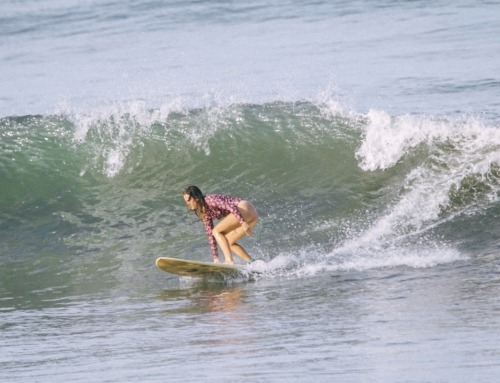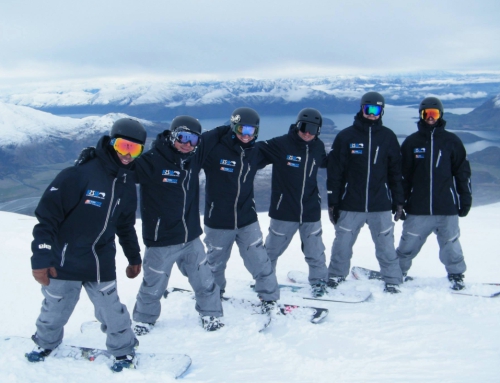Interski 2023: Alpine Takeaways from Denmark and Sweden
Held every four years, Interski brings instructors together from around the world. The event offers a valuable educational opportunity for snowsports instructors to share their innovations and core beliefs. It gives PSIA-AASI, through its national team, an opportunity to compare the American Teaching System with educational approaches of other countries and bring home ideas that help PSIA-AASI members improve and evolve.
Here, PSIA Alpine Team members Joshua Fogg and Stephen Helfenbein share their takeaways from workshops presented by Denmark and Sweden.
Denmark Presented “The Lost Art of Patience – Round Turn Shape as Good Skiing”
Joshua Fogg: The three top takeaways from this presentation for me are the following:
- Accurate alignment of the body to the outside ski through a combination of inclination and angulation allows for the skier to be patient at the initiation of the turn.
- Accurate inclination at the beginning of the turn helps pressure build gradually for the shaping phase.
- Adding angulation later in the turn assists in an earlier release of pressure in the finish phase of the turn.
Denmark instructors teach lessons around Europe since they don’t have any domestic ski resorts. Many of their lessons are multi-day courses held in other nations. I appreciated how the Danes used a stem christie as a drill to illustrate an accurate amount on inclination in the invitation phase of the turn. Then, they challenged us by using an outside ski turn where we were asked to lift the upcoming outside ski before changing edges. They said that the next drill in skill development would be a white pass turn.
Often, this combination of drills would not be recognized as a way to develop accurate inclination.
Purposeful and accurate movements create patience at the beginning of the turn. Sometimes people perceive that patience at the beginning of the turn is achieved through passivity. This is a good approach to develop purposeful movements for improving alignment to the outside ski through the beginning of the turn to create a rounder and “more patient” turn entry.
Sweden Presented “Experiential Learning for an Exceptional Guest Experience”
Stephen Helfenbein: When the experiential learning process is working, it improves the learner’s self-awareness by encouraging them to reflect on their experience. As self-awareness develops, motivation to continue learning seems to follow. As self-awareness and motivation increase, every situation can become a learning situation.
Sweden’s view on this relationship between student motivation, and the learning process aligns with our views as we place the learner at the center of the lesson experience to foster their self-awareness by leveraging their motivation to do so.
Sweden integrates concepts of leadership into instructor development. They believe leadership forms the foundation upon which they can create skill acquisition in new instructors. In some cases, leadership training is a prerequisite in their instructor training curriculum. They will only begin trainings on technical and teaching skills after they have thoroughly addressed leadership.







